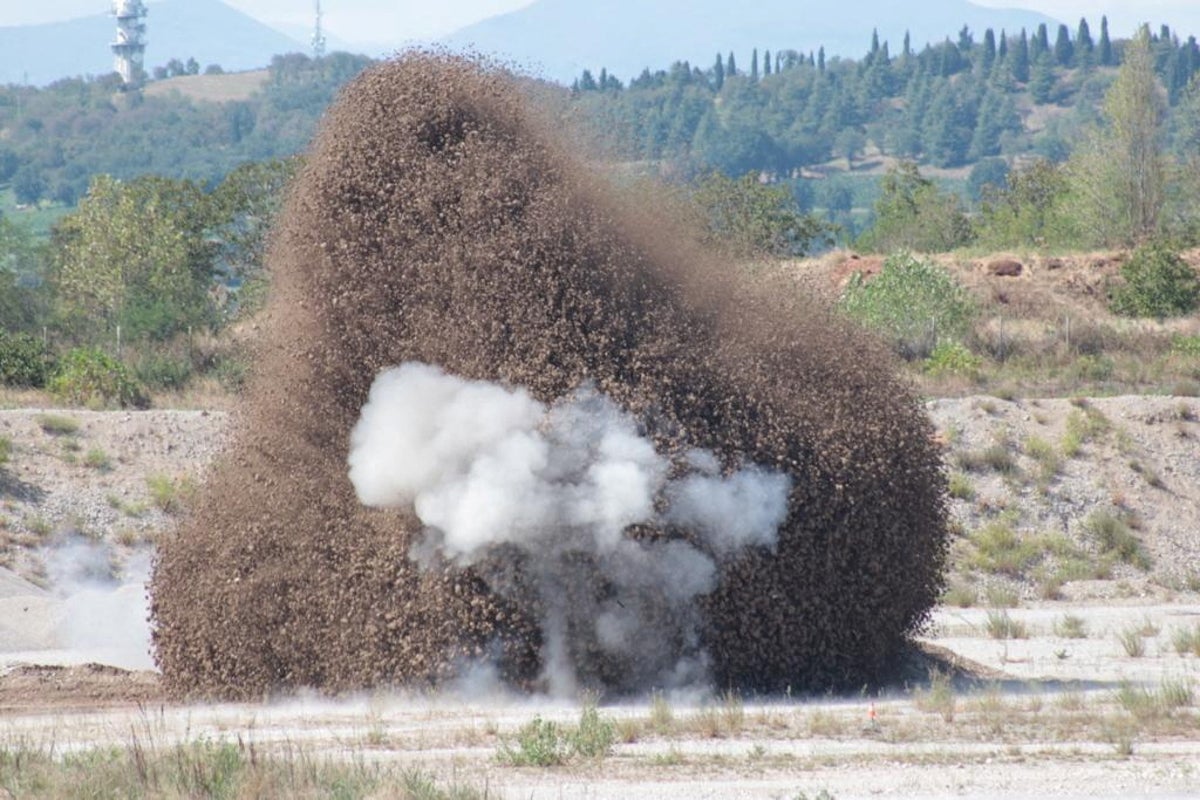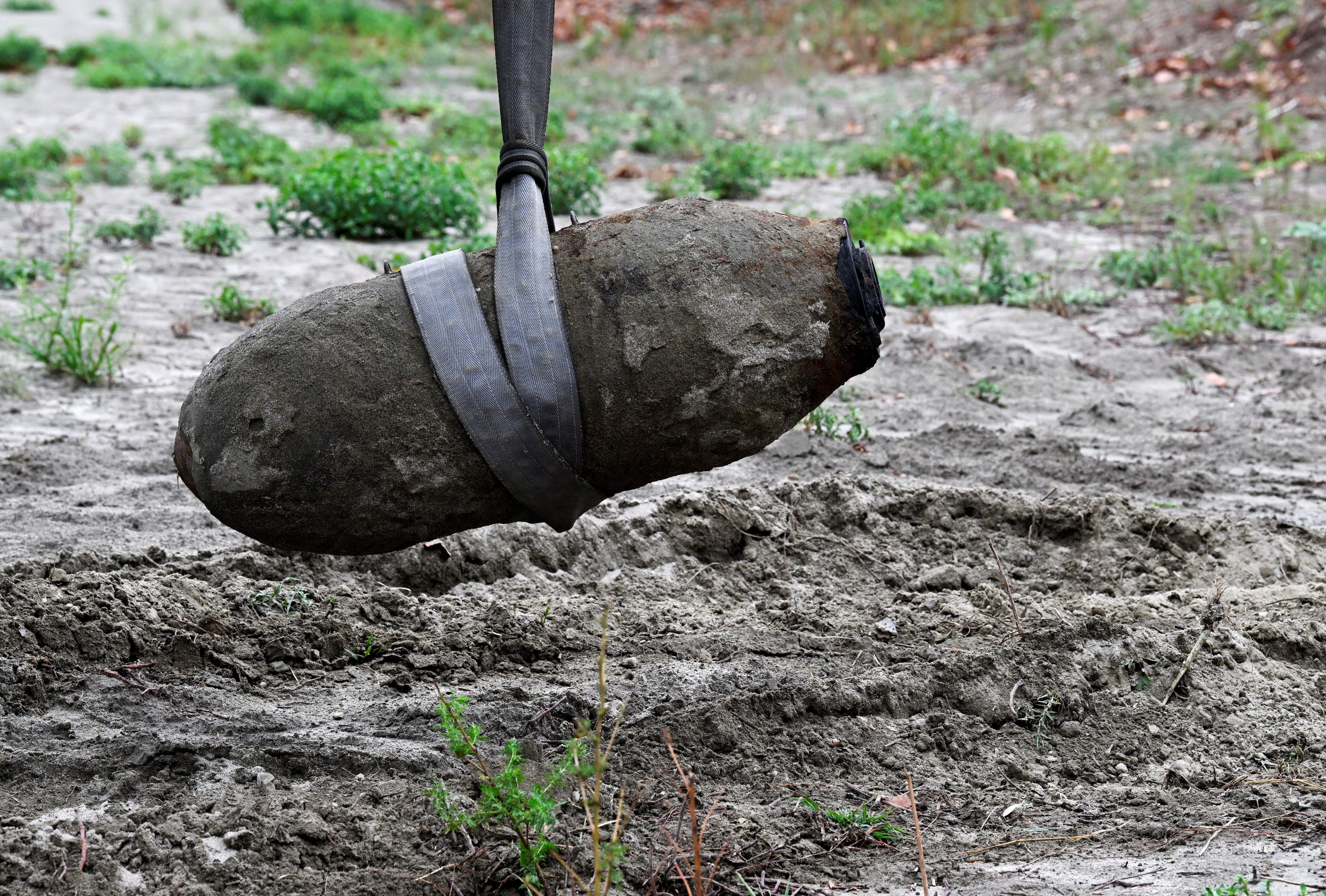
A large Second World War bomb discovered in an Italian river during a severe drought has been safely defused, the military has said.
Fishermen spotted the US-made device, which weighed 450kg and contained 240kg of explosives, in the dried-up River Po on 25 July.
The discovery came after the river’s water levels hit a record low following months of low rainfall.
“The bomb was found by fishermen on the bank of the River Po due to a decrease in water levels caused by drought,” Colonel Marco Nasi said.
Around 3,000 people who live in the surrounding area had to evacuate their homes before the disposal operation could take place.
“At first, some of the inhabitants said they would not move,” said Francesco Aporti, the mayor of Borgo Virgilio, a village located close to the northern city of Mantua.
However, the authorities succeeded in persuading them to leave their properties so that the bomb could be transferred to a nearby quarry to be detonated. They were allowed to return to their homes on Sunday afternoon after engineers had completed the operation.
Before the bomb was destroyed, a stretch of the river and the area’s airspace were closed. A local railway line and nearby road were also shut temporarily.
The controlled explosion happened in a quarry in Medole municipality, 45km (30 miles) from where it was found.
The Po, the country’s longest river, is experiencing its worst drought for 70 years, raising fears about its effect on the agricultural industry.

As a result of the lack of rainfall, Italy has imposed hosepipe bans in some regions and has imposed a state of emergency in regions including Lombardy and Piedmont, which will last until the end of the year.
Temperatures in Italy have been around three degrees warmer than the seasonal average from May to July, as Europe contends with record-breaking temperatures.







